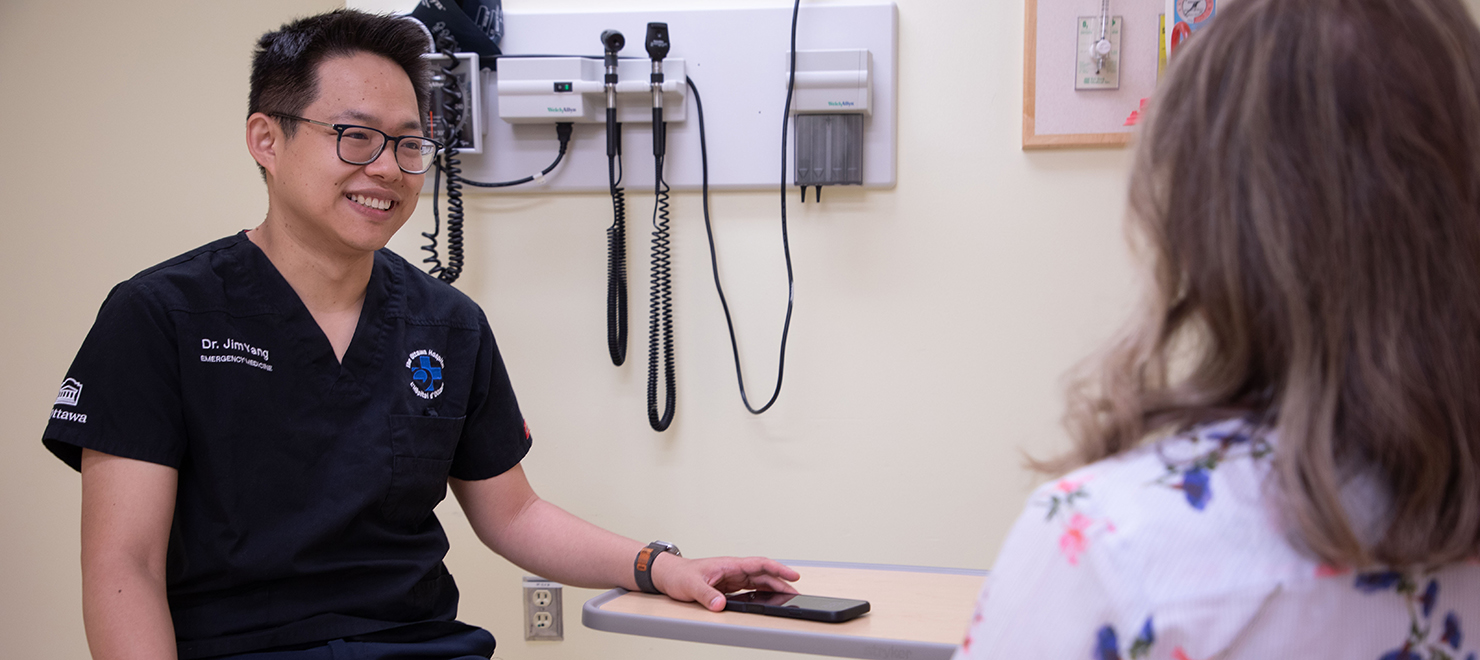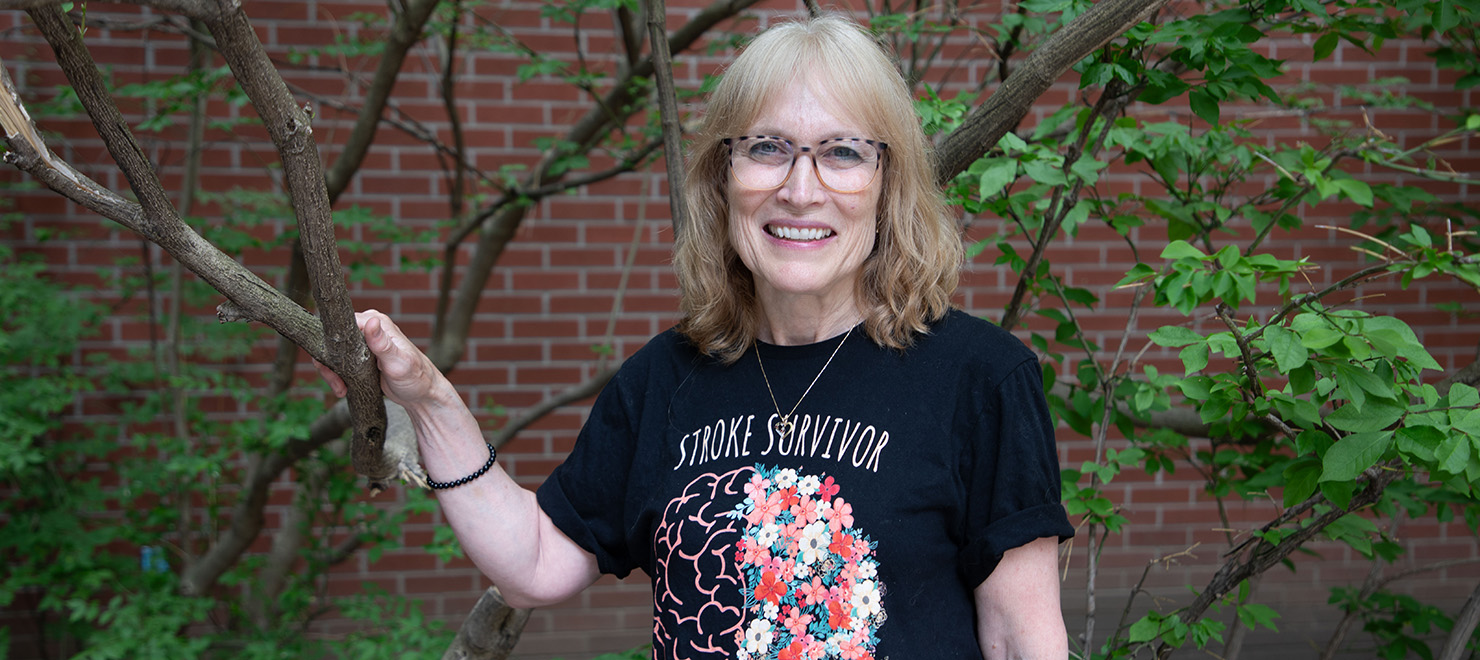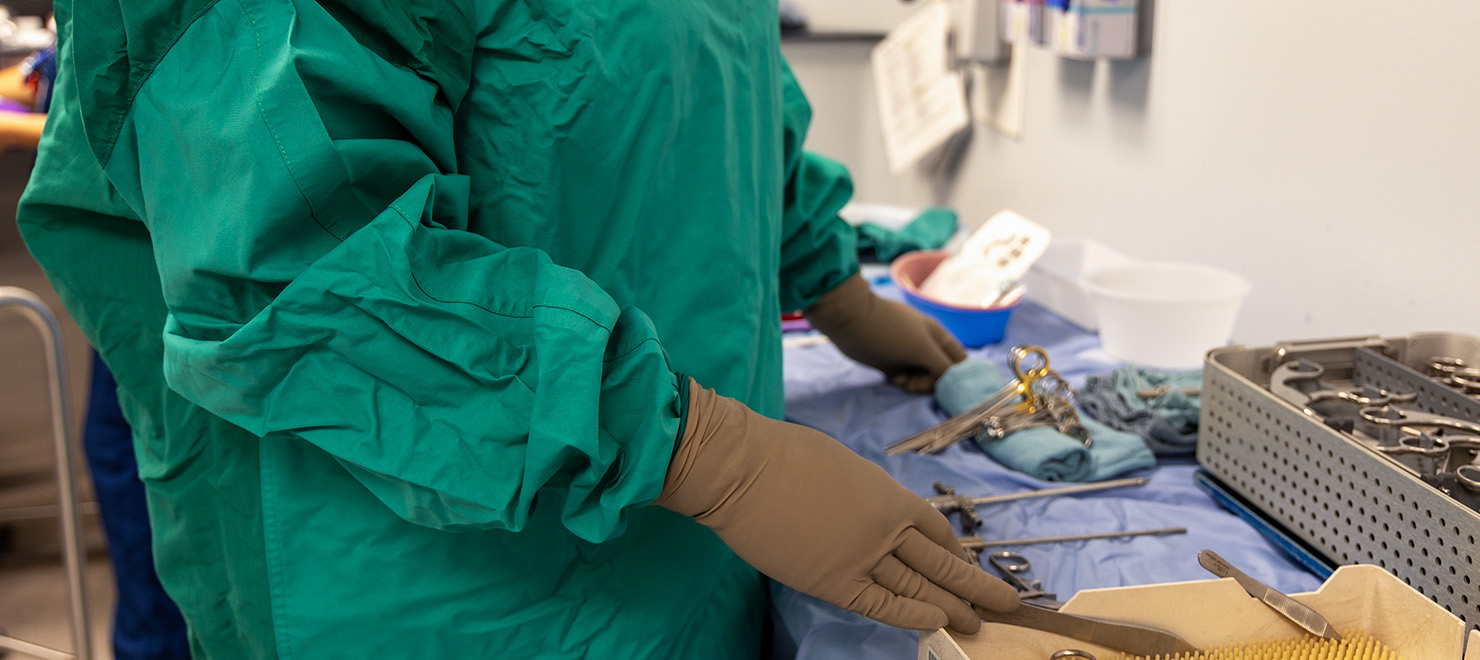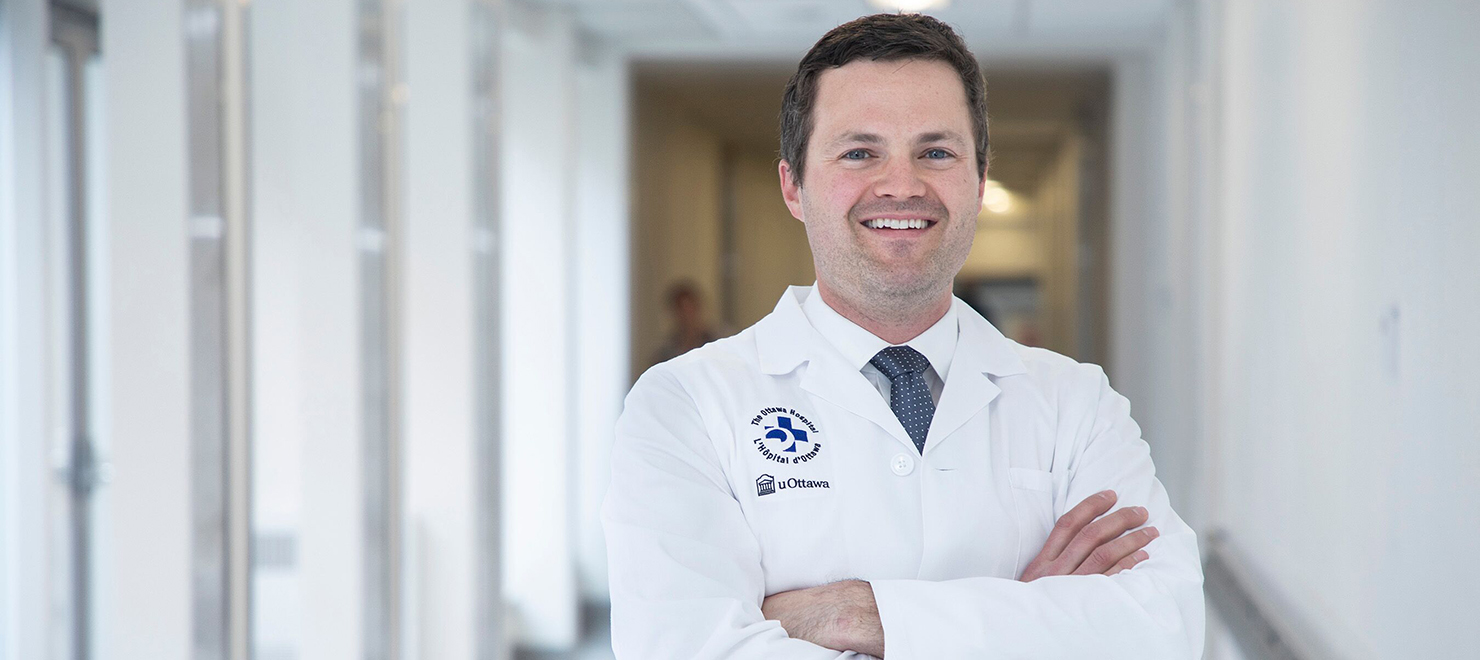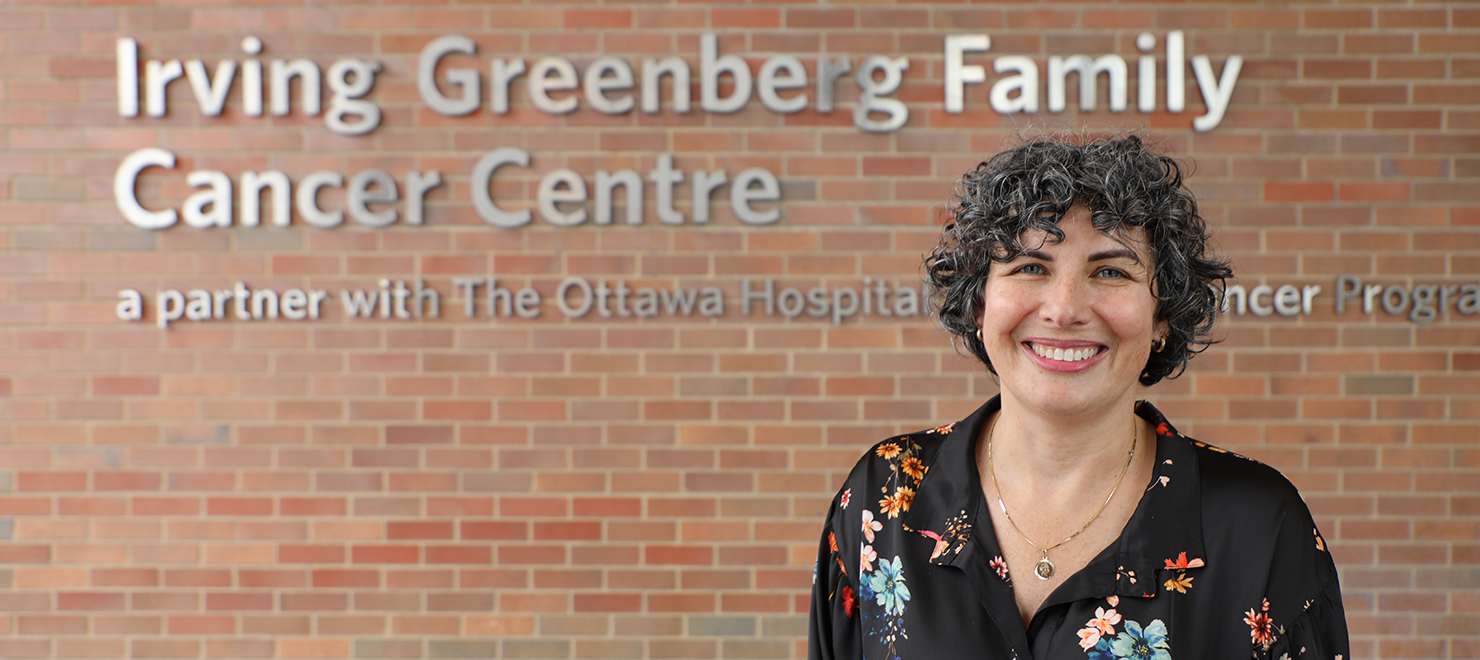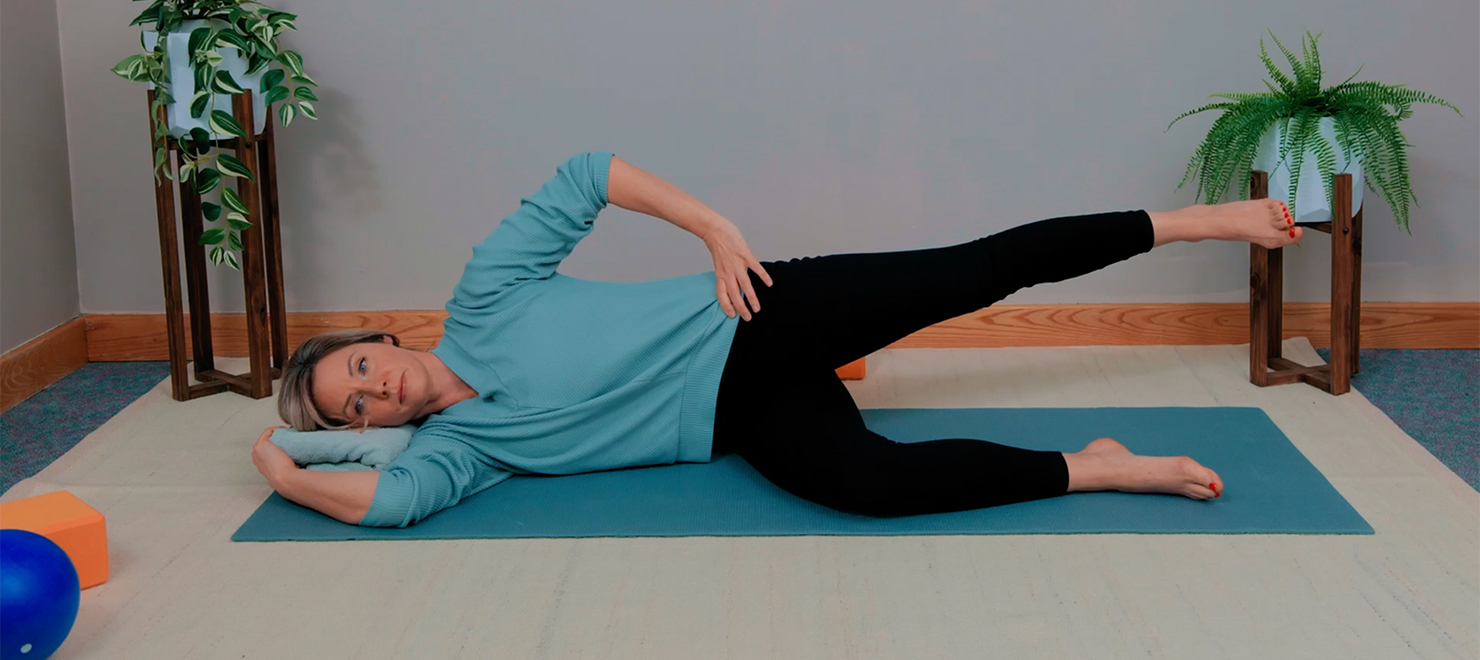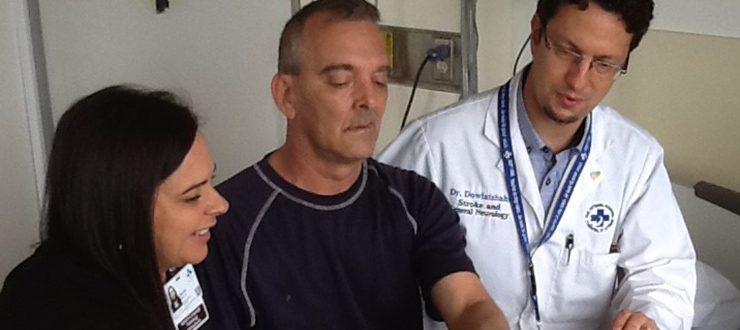
Speech-language pathologist Karen Mallet (left) and Dr. Dar Dowlatshahi (right) show Michael Fairhead, a stroke patient, how to use the tablet with RecoverNow on it.
The first patient wasn’t sure about trying the tablet with RecoverNow on it. She was 75, had had a stroke, and had never even used a typewriter. But the modern technology was easy to use. She loved it.
“Historically, we’ve given pen and paper activities to patients who’ve had a stroke to help with the recovery of their communication skills,” said Karen Mallet, a speech-language pathologist who works exclusively with stroke patients. “Sometimes patients require someone to read instructions or help them understand the activities. If no one is there to help, they can’t do that activity. However, the tablet is interactive and they can get immediate feedback even if they are alone.”
Mallet said that, between April 1, 2017, and March 31, 2018, close to 800 stroke patients were seen at The Ottawa Hospital, the region’s stroke centre. On average, patients who have had a stroke wait about 14 days before being transferred to inpatient rehabilitation where they receive speech therapy and physiotherapy. Research shows, though, that the sooner stroke patients receive therapy, the better their recovery.
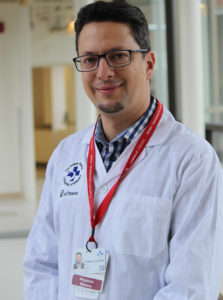
Dr. Dar Dowlatshahi will lead two innovative clinical trials for stroke.
Stoke neurologist Dr. Dar Dowlatshahi came up with an idea to help patients get working on speech and communication skills while they are still in their beds in acute care. Collaborating with The Ottawa Hospital mHealth Lab, he developed RecoverNow, a tablet-based platform that incorporated commercially available apps that help patients improve their speech, language, and cognitive communication skills, including memory, abstract reasoning, and organization.
Over a six-month period, 30 patients were enrolled in the first phase of the trial. The study results were positive. Patients used the tablet more than 60 minutes daily – time they would’ve otherwise spent without therapy.
“It was a feasibility study, so we wanted to know if patients would be able to use the RecoverNow tablet with apps on it,” said Mallet. “After having a stroke, regardless of their age or their familiarity with technology, they were able to do it.”
With the success of the first phase of the clinical trial, The Ottawa Hospital is embarking on a second phase, funded by the Heart and Stroke Foundation, that will include trial sites at hospitals in Toronto and Calgary. The trial will be launched in Ottawa in fall 2018. Dr. Dowlatshahi said the goal is to enroll 226 patients in the study – including 100 patients in Ottawa.
“For the trial, we’ll start the speech therapy in the hospital by using a mobile tablet with apps,” said Dr. Dowlatshahi, who is also a researcher at The Ottawa Hospital and an associate professor at the University of Ottawa. “When patients leave the hospital, they can take the tablet with them and continue with therapy for three months. It will be remotely monitored by a speech pathologist, which will help stroke patients recover.”
He said that the cost savings associated with this mobile therapy will also be evaluated. The tablets will be reused, the software is relatively inexpensive, and a single speech therapist is able to handle multiple patients. No other hospital has a mobile tool like RecoverNow for patients, and Dr. Dowlatshahi sees the potential that the tablet and communication apps have to speed people’s recovery.
Dr. Dowlatshahi is also working with Dr. Duncan Stewart, a stem cell expert at The Ottawa Hospital, to launch a second clinical trial for stroke.
“The Ottawa Hospital has great strength in stem cell research, with world-first clinical trials underway for diseases such as heart attack, septic shock, multiple sclerosis and a rare lung disease,” said Dr. Stewart, who is also Executive-Vice President of Research at The Ottawa Hospital and a professor at the University of Ottawa. “Because we have the right people and the right facilities already in place, we could launch a trial for stroke relatively quickly, once we get the funding.”
This new trial would be unique in that it would use stem cells to help stroke survivors months after they leave the hospital.
“This is the opposite of RecoverNow,” said Dr. Dowlatshahi. “The new stem cell trial would look at late recovery with people who have finished rehab and still have deficits. So this would be a trial with patients three to six months after their stroke.”
Most stroke stem cell studies being conducted now focus on acute care, immediately after a stroke. It was believed that recovery slows down and stops three months after. But Dr. Dowlatshahi said new data suggests that is not the case. There is potential for recovery later as well. This stem cell study will target those who’ve gone through rehab and still have the weakness, such as in their upper body and arms. All patients will receive intensive physiotherapy along with the stem cells.
Another unique feature will be that the stem cells will be given through a simple intravenous injection, rather than an injection into the brain. This is less risky, and evidence suggests it could be very effective.
“We don’t know if the stem cells will work, but this is how we’ll find out,” said Dr. Dowlatshahi. “We’re going to start with about 16 people – very small-scale – to show that we can do it and to show that it is safe. If that first safety phase is successful, we’ll then be able to garner more funding for a multicentre trial led by The Ottawa Hospital.”
Ultimately, over the next three to five years, the trial will hopefully prove that not only does the stem cell treatment work and people get better, but also people get better even several months after their stroke.
“The two programs will work synergistically,” said Dr. Dowlatshahi. “The RecoverNow starts therapy right after the stroke. And at the backend, once people have gone home and if they still have deficits, that’s when they’ll start the stem cell treatment. That’s the overall kind of stroke recovery program we are going to run.”
The Ottawa Hospital is raising funds for stroke research, exploring new treatments and improving the lives of patients.

Support patient care and research at
The Ottawa Hospital
You might also like…
Less time charting means more time with patients: How The Ottawa Hospital is using AI to support patient care
“I’m seeing and treating more patients.” Find out how DAX Copilot, a powerful AI assistant, is helping our physicians cut down on paperwork, improve their own well-being and spend more time with patients.
From survivor to supporter: Peer volunteers bring hope to patients recovering from stroke
Drawing on their own lived experiences as stroke survivors or caregivers, volunteers with March of Dimes Canada’s After Stroke Hospital Peer Connections program offer emotional support to those just beginning their recovery journey. Discover the difference they’re making and learn about how you can request support for a loved one — or become a beacon of hope yourself.
New reusable surgical gowns a step towards greener operating rooms
The Ottawa Hospital is finding safe, innovative ways to reduce medical waste in its operating rooms by using more environmentally sustainable products.
Do you have a surgery coming up? Here are five “prehab” tips to help you recover faster
You’ve probably heard about rehabilitation, but what about “prehabilitation”? Prehab is all about getting your body and mind in top shape before surgery so you can enjoy a smoother, quicker recovery. Discover five essential prehab strategies from researcher Dr. Daniel McIsaac.
By thinking differently, this research team is improving the lives of people with cancer
Taking a different approach to clinical trials, the REthinking Clinical Trials (REaCT) program aims to answer some of the most important and practical questions that affect both patients with cancer and our health-care system. Find out what sets REaCT apart and makes the program so special to participants like Beth.
A guide to mindful movement for pain management
Are you seeking relief from pain, discomfort or stress? In these four videos, Physiotherapist Cristin Kargus guides you through gentle, mindful movements to help you reconnect with your body.


 To reset, hold the Ctrl key, then press 0.
To reset, hold the Ctrl key, then press 0.
